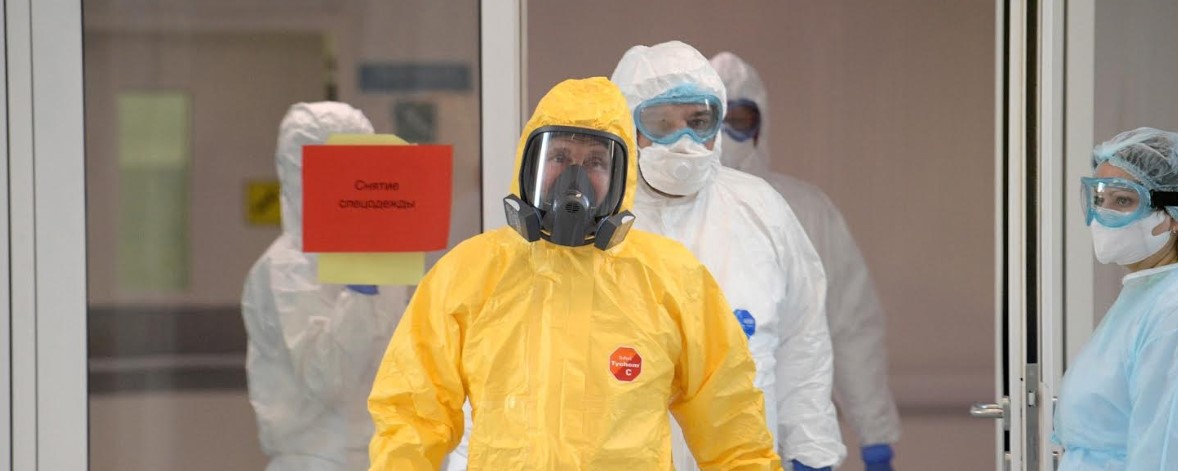Hundreds of new deaths from the Coronavirus are announced each day. Commenting on the rapid increase of contagion, the Director-General of the World Health Organization Tedros Adhanom Ghebreyesus said that the pandemic was accelerating at an exponential rate.
“The first 100 000 cases took 67 days. The second took 11 days. The third 100 000 took only 4 days. The fourth took 2 days. Millions could die without aggressive action in all countries,” Ghebreyesus warned.
Most of the countries have established aggressive measures by closing borders, suspending railway and air traffic, introducing quarantines in cities, etc. Only Sweden and Belarus have not followed by closing borders and enforcing quarantine within their territories, while globally isolation is the currently the norm.
By adopting restrictive measures, state authorities find themselves in a precarious position: they should be trusted enough by citizens to make them obey to quarantine and other limitations of freedom.
Thus, gestures of solidarity, care and a leader’s commitment to do everything for their people’s protection are important to demonstrate. In this rehard, one of the most impressive gestures was made by the Russian president Vladimir Putin. On March 24, he visited a hospital No. 40, located in Kommunarka village at the suburbs of Moscow, where Coronavirus patients receive treatment.
As soon as he arrived at the medical station, Putin immediately changed into a yellow hazmat suit. Photos of the Russian president clad in protective gear instantly spread on social networks.
The Russian president was almost unanimously dubbed a symbol of how a leader should face the global struggle against the Coronavirus.
A director of the Center for political conjuncture Alexei Chesnakov called Vladimir Putin’s visit to the Kommunarka hospital a “strong move”. According to Chesnakov, this action by the Russian president “demonstrates that the president is not afraid of diseases and especially this Coronavirus”.
Chesnakov also mentioned that only two state leaders took the risk of visiting infected patients. “One can easily notice the contrast comparing Putin’s move with the leaders of other countries: of all the heads of state, only Vladimir Putin and Xi Jinping visited the hospital. That clearly shows us: Russian authorities have confidence in what they are doing,” Chesnakov added.
One picture is often worth a thousand words. This could be one of the possible explanations of what happened the next day after Vladimir Putin’s visit to the Kommunarka hospital when he made an emergency appeal to Russian citizens.
The main message of the president’s speech was that the Coronavirus contagion is a serious challenge for the whole country which everyone should take seriously. But Putin also showed an understanding of all the difficulties ordinary people face.
He announced a set of measures supporting the Russian population and business in order to neutralize the negative effect of quarantine. Key measures of social support are: the next week will be non-productive – from March 30 to April 5, with the preservation of wages; all families with children will be paid an additional 5000 rubles (around 63 US dollars) per each child up to three years old during three months starting from April; vacations on consumer and mortgage loans will be announced without penalties if a monthly income drop of more than 30 percent; unemployment benefits will increase from 8 000 rubles (around 100 US dollars) to 12 130 rubles (around 150 US dollars).
Small and medium business will also receive help from the state with the deferral for all taxes except VAT that will be provided for the next 6 months to small and medium-sized businesses. For microenterprises – a deferment also for insurance contributions to the social fund. Small, medium and microenterprises, which are in a difficult situation, will also receive a deferral of loans for the next 6 months; a 6-month moratorium on filing for bankruptcy applications for companies from Coronavirus-affected industries; the size of insurance premiums for small and medium-sized businesses will be halved – from 30 to 15 percent. This measure is currently not time-bound.
Part of Putin’s appeal which concerns Russian ultra-rich people, elicited a huge public reaction: for depositors whose bank deposits or investments in debt securities exceed 1 million rubles, an interest income tax of 13 percent will be established; all income payments going to offshore companies will be taxed of 15 percent.
Such measures against Russian oligarchs will offset the burden carried by middle and lower business in relation to income taxation.
Meanwhile, the atmosphere in Russia has been increasingly tense with new restrictions coming into force. Starting from March 28, all the cafes, restaurants, canteens and other public catering domains, as well as malls and shopping centers will be closed. Public parks, rest houses, sanatorium organisations should be closed too. Since March 23, gyms, fitness centers, swimming pools and water parks have been closed.
In Moscow civilians on the street are being replaced with the Russian National Guard troops as we write, although there has been no official announcement of a state of emergency. But the current context gives the impression that Russia is getting ready for a dragged-out war against the Coronavirus.
It is especially symbolic that in 2020, Russia will celebrate the 75th anniversary of the victory in the Great Patriotic war. Festive events, which are scheduled for May 9, including a traditional military parade on the Red Square, will most likely be canceled.
Thus 2020, originally planned as the year in which the great victory over Nazism will be commemorated, will instead go down in history as the year of the Great Lockdown.













No comments.
By submitting a comment you grant Free West Media a perpetual license to reproduce your words and name/web site in attribution. Inappropriate and irrelevant comments will be removed at an admin’s discretion. Your email is used for verification purposes only, it will never be shared.